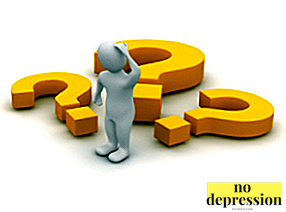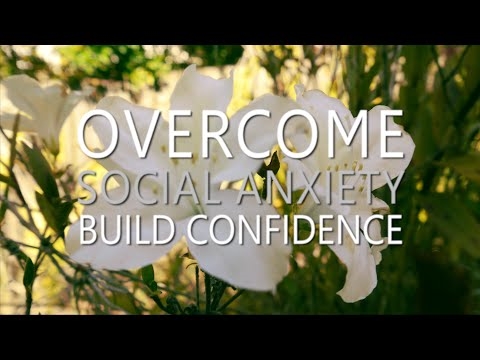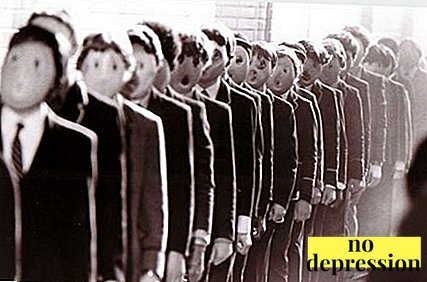Any human activity is the result of effort.
To achieve the objectives allows volitional regulation of behavior.
Function of volitional behavior

What is the function of volitional behavior?
Individual activity is always aimed at achievement of certain results.
At the same time, motivation can be both conscious and unconscious.
In the first case we are talking about purposeful activityduring which a person is guided by logic, common sense. In the second case, the activity is also purposeful, but it is carried out under the influence of unconscious motives (emotions).
The main function of volitional behavior - Achieving a person consciously set a goal.
In each case, a specific sequence of steps is developed, the observance of which allows to achieve the most effective result in the proposed circumstances. All decisions and actions are analyzed.
Strong behavior is manifestation of an individual approach to his own person.
At such moments, a person considers himself not as a member of society, but as an independent active unit, responsible for the decisions made.
Similar actions always facing the future, because they allow to determine the path of further development. A person ceases to assess his real state at the current time and begins to think in the future.
Will regulation in psychology

In psychology, volitional regulation is considered as important self-organization mechanism personality.
Every person is constantly experiencing the need for decision-making, choosing a path to achieve a goal.
When planning his behavior, he is faced with problem of struggle motives. This problem is especially pronounced when there is a collision of personal desires with socially significant issues.
Also often there are difficulties when a person is torn between the arguments of the mind and emotions. Such flours of choice are accompanied by vibrations, feelings, and stress. Any responsible life decision forces one to make an effort.
Strong regulation is necessary to make the right choice. It allows a person to choose the type of behavior that is most acceptable and effective at the moment.
The activity is carried out in accordance with the existing individual life attitudes and rules, but with an emphasis on logic, and not on emotions.
The ability to overcome their internal contradictions and choose the most appropriate strategy at the moment of action - this is the volitional regulation of behavior.
Depending on the emotional identity of the person level of volitional regulation may vary significantly.

Anxious, insecure, and doubting individuals are much more likely to face the challenge of fighting motives than balanced people with a stable value system.
The same problem can provoke a serious struggle of motives in one person, and in another don't cause any hesitation.
What actions are inherent?
Volitional regulation inherent conscious and purposeful actiontaken by the decision of the individual. Performing these actions allows you to solve existing problems or achieve the desired result.
It is customary to single out simple and complex actions. A simple action is almost an automatic act, when an obvious motive leads to the execution of a task and obtaining a result.
Such actions do not imply the application of significant volitional efforts and equate to skills. For example, while crossing a road, a person sees a car approaching at high speed and takes a step back.
Here the motive is the desire to move away to a safe distance, and the action is expressed in a step backward. The result is skipping a moving car and eliminating unpleasant consequences.
Difficult action requires more volitional effort. It consists of a series of stages:
- goal awareness;
- appearance of desire to achieve it;
- opportunity analysis;
- evaluation of motives (both stimulating to achieve the goal and opposing it);
- fighting motives;
- decision-making;
- the commencement of activities aimed at implementing the decision;
- overcoming emerging obstacles;
- getting the result.

Mechanisms
Simple action includes 4 components: sensory, central (mental), motor, control and corrective.
On touch level a person perceives the proposed circumstances. On central level is the understanding of the problem.
Motor the component stimulates to perform active actions aimed at achieving a decision made at the mental level. At the level of control there is an assessment of the committed action.
If there are doubts about the positive outcome of the situation, the behavior is adjusted.
A complex action has an expanded structure. The mechanism of complex volitional regulation:
- Awareness of current needs. This may be a sense of need for certain people (communication), living conditions, wealth, specific objects, social factors, etc. The list of current desires is unlimited. During life, new needs constantly emerge. Often the satisfaction of some of them leads to the automatic emergence of the next aspirations arising from the changed circumstances. For example, a person dreams of a car. Having bought a car, he begins to dream of a garage, etc. Until the individual satisfies his current desire, he experiences a state of discomfort. Moreover, the level of discomfort depends on the degree of desire for it. That is, a person selectively perceives the surrounding reality. Having access to various benefits, he can feel discomfort only because of the inaccessibility of the good that he himself considers necessary.
- Assessment of existing opportunities to meet existing needs. As a result of choosing one of the possibilities, a goal is formed.
The goal acts as a backbone component. It forms the whole subsequent system of actions, motives and means.
All global goals that a person sets for himself determine the meaning of his life activity. The current goals that we constantly set for ourselves throughout our life determine the paths of our development. Without goals, man would not see the point in his existence.
- Fight motives. In difficult life situations there is a collision of various motives that are contradictory.
 Such a collision may be short-term or protracted. If the situation is resolved quickly enough, then the person gets out of it with minimal loss of time and effort. If the struggle of motives is delayed, the person faces the agony of choice. It takes a lot of time nerve forces. Usually a short-term character is a struggle between two desires of different values. In this case, the more important desire quickly enough prevails. If desires are equal, it is extremely difficult for a person to choose between them.
Such a collision may be short-term or protracted. If the situation is resolved quickly enough, then the person gets out of it with minimal loss of time and effort. If the struggle of motives is delayed, the person faces the agony of choice. It takes a lot of time nerve forces. Usually a short-term character is a struggle between two desires of different values. In this case, the more important desire quickly enough prevails. If desires are equal, it is extremely difficult for a person to choose between them. - Decision-making. In such a situation of uncertainty, in the end, the final decision is still made, which determines the further activity of the subject. By its nature, such a decision can be impulsive, balanced, risky, cautious, inert. Each person chooses the type of decision depending on the level of development of his intellect, on the peculiarities of his character.
Intellectually developed people with solid life attitudes usually make balanced decisions.
In extreme situations, they objectively assess the degree of risk and choose the best option. Emotionally excitable personalities usually perform impulsive, risky actions. Doubtful individuals prefer inert, cautious decisions.
- The implementation of activities. The specific objectives of the activity are determined, the ways and means of its implementation are planned in detail. Since any actions are carried out under certain conditions, a person always repels himself from the proposed circumstances. If during a move towards the goal, circumstances change, it becomes necessary to adjust the chosen methods and ways to solve the problem.
- Getting the result. The expediency of actions taken is determined by the final result. It must fully relate to the original goal to which the individual was striving. At the same time, it is assessed how much it satisfies the initial need and responds to the motives of the activity.
If the desire, which initially was the basis of the activity of the individual, is completely satisfied by the end of the act of volitional behavior, we can speak about the successful implementation of the task.
If, despite the achievement of a formal goal, there is no satisfaction with the original motive, it becomes necessary to apply new efforts to achieve the most satisfactory result.


According to Ivannikov

V.A. Ivannikov proposed his own interpretation of the mechanisms of regulation of volitional behavior.
In his opinion, Initially, the goal is formed under the influence of external circumstances.
That is, there is a need to perform any actions, regardless of whether the individual has the corresponding desire.
Then in consciousness occurs making the proposed action necessary additional meaning in accordance with the existing system of values, attitudes and desires.
Ivannikov was of the opinion that the ease of creating an additional sense of action directly depends on the level of moral development of the individual.
A person with a high level of moral attitudes always demonstrates a high level of volitional abilities that help him give meaning to any action.
The scientist identified the following psychological mechanisms of volitional regulation:
- revaluation of motive;
- changing the role of the individual;
- emotional experience caused by waiting for a result;
- appeal to rituals, traditions;
- creating a connection between the proposed action and more significant motives;
- stimulation of your activity with the help of imagination (for example, to present yourself as a competitor).
Study

A.V. Zverkov and E.V. Eidman developed a test questionnaire aimed at the study of volitional regulation in subjects.
The test allows you to identify how a person has developed the ability to self-regulation.
Namely - level of control of your own state, motives, actions.
The study procedure can be conducted with one subject or with a group of individuals. Each participant receives a form with questions and answer boxes. To the form attached instruction.
Each test consists of 30 statements. The task of the study participants - determine your attitude to approval. If the statement for a particular person is incorrect, he puts a minus. If the statement is true, put a plus.
Analysis of the results allows us to conclude about the level of self-regulation, self-control, perseverance.
Thus, volitional regulation of behavior allows a person consciously set goals and achieve them effectively. Complex volitional actions are a multi-level mechanism consisting of different components.
What is the difference between arbitrary and volitional regulation? Examples of volitional behavior:

 Such a collision may be short-term or protracted. If the situation is resolved quickly enough, then the person gets out of it with minimal loss of time and effort. If the struggle of motives is delayed, the person faces the agony of choice. It takes a lot of time nerve forces. Usually a short-term character is a struggle between two desires of different values. In this case, the more important desire quickly enough prevails. If desires are equal, it is extremely difficult for a person to choose between them.
Such a collision may be short-term or protracted. If the situation is resolved quickly enough, then the person gets out of it with minimal loss of time and effort. If the struggle of motives is delayed, the person faces the agony of choice. It takes a lot of time nerve forces. Usually a short-term character is a struggle between two desires of different values. In this case, the more important desire quickly enough prevails. If desires are equal, it is extremely difficult for a person to choose between them.

